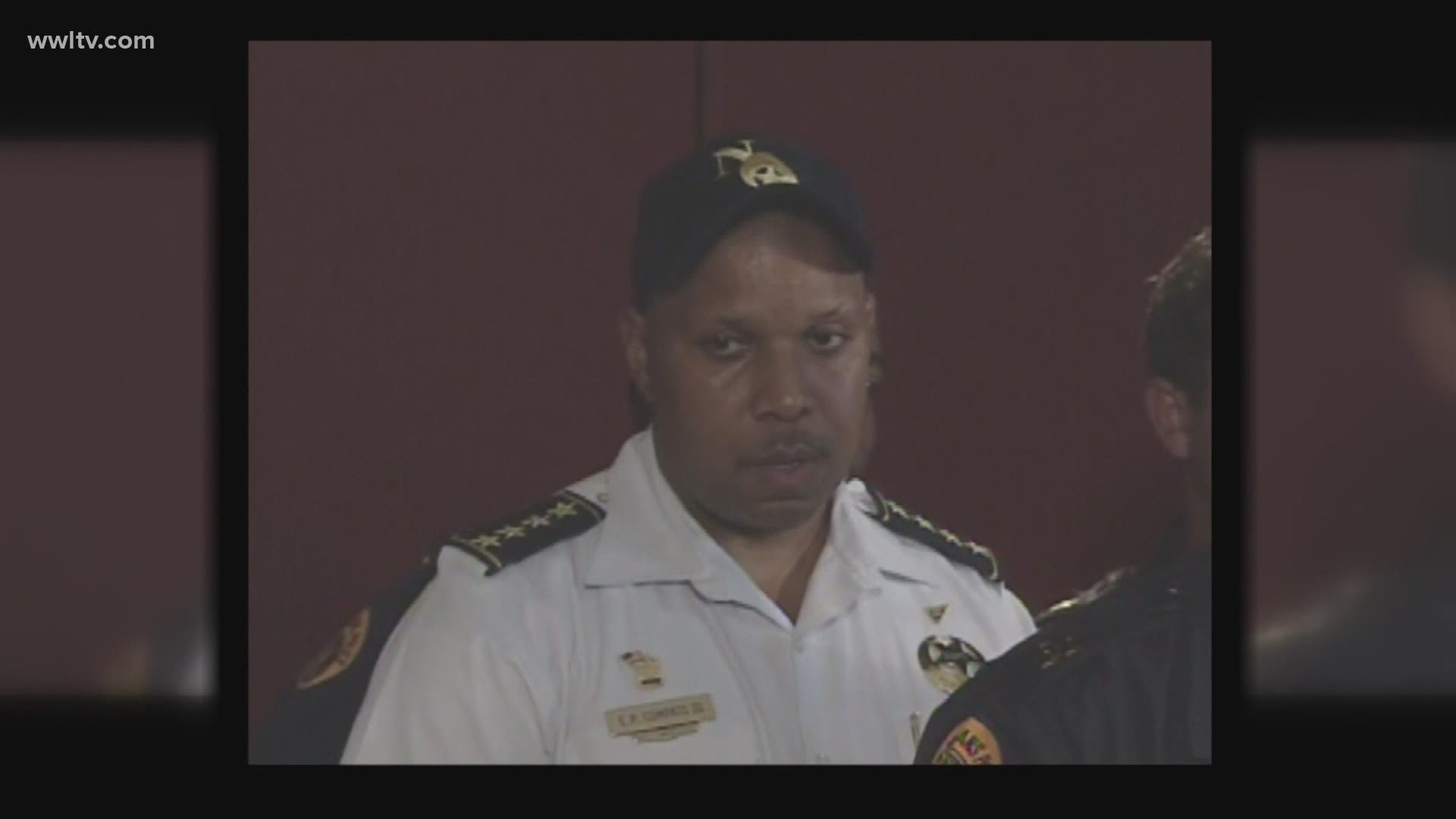NEW ORLEANS — When the levee failures after Hurricane Katrina left New Orleans underwater, the New Orleans Police Department and then-Chief Eddie Compass were put through the ultimate test.
“I'm one man. I'm one person,” Compass recalled on the eve of Katrina’s anniversary. “And I gave my heart and soul. I did my job. I did everything humanly possible. I stood at the forefront. I was in that water."
Amid death, destruction and mass looting, police tried to keep the city from descending into complete chaos.
Compass tried to calm stranded evacuees at the Superdome, the city’s shelter of last resort, and the Ernest N. Morial Convention Center, which became an unofficial shelter when more than 15,000 gathered in search of food, water and high ground.
In what is now considered an important turning point in restoring order to a chaotic city, Compass huddled with Army Gen. Russell Honore to coordinate with the military troops who were sent to help.
But when Compass broke down in tears while giving a report of babies getting raped in the Superdome – a report that turned out to be false – he found himself under fire from then-mayor Ray Nagin.
“The mayor and I did not have a good relationship,” Compass acknowledged.
But the emotional breakdown and erroneous reports are not what cost Compass his job less than four weeks later, as many people came to believe.
As radio host Oliver Thomas summarized in his interview with Compass on WBOK this week, the former chief was fired when he made one television appearance too many during the crisis.
When the Saints were forced to play their “home opener” in New York against the Giants on Sept. 18, NFL officials wanted a first responder to conduct the coin flip.
And they wanted a particular first responder: Chief Eddie Compass.
“You were criticized for going to the Saints game,” Thomas said. “So right here, right now….what would even make you want to go to a football game in the middle of such disaster when your city needed you?”
Compass used the rhetorical question to open up about what really happened.
“I didn't want to flip no coin. Trust me, I didn't want to flip no coin,” Compass explained.
In fact, Mayor Nagin told Compass not to go. Despite the fact that the NFL was pushing hard to get Compass, Nagin told his chief that the only way he would be allowed to go was through a change of plans and permission by him or his Communications Director Sally Forman.
Sure enough, the next day, Forman said the mayor had changed his mind. Forman’s office provided the flight details and Compass was on his way.
“She said, ‘They want you to flip the coin with President Bush 41, go ahead and do it.’ I said, ‘Are you sure?’ She said, ‘I'm absolutely sure.’ ”
But as it turns out, the mayor himself had not changed his mind. Through some miscommunication, Forman told Compass something that Nagin had not approved. In fact, when Nagin found out, he was furious.
“It seems that you got flipped,” Thomas said.
“I got flipped, exactly,” Compass said.
When the mayor saw Compass at the game, he wasted little time asking his inner circle about the best strategy to part ways with his police chief.
And when the media began asking questions about how the chief could leave the city in the middle of a crisis, Nagin accelerated the process. He texted Compass and told him to prepare a 30 to 60 day exit plan to resign.
“So here I was ordered to go the game,” Compass said. “That's what I'm saying to myself. But (when the criticism started) I can't defend myself. I'm being tried, convicted and sentenced on innuendo, supposition and conjecture. I'm being vilified.”
On September 27th, 2005, Nagin announced Compass's “resignation.”
Both men offered comments that later were revealed to be untrue.
“It’s a sad day in the city of New Orleans when a hero makes a decision like this,” Nagin said at a surprise press conference at the Sheraton Hotel.
In the same press conference, Nagin’s grim expression contradicted many of his light-hearted words: “I trust he will make a lot of money and I hope he will send me a Christmas card every now and then.”
The look on Compass’s face was even more telling. Not only was Compass forced to leave, he was forced to leave the job he had dreamed of since he was a youngster.
Nagin and Compass refused to answer questions at the surreal event. Local reporters, especially those who knew Compass well, were highly skeptical and immediately launched an effort to get the real story.
After all, just two weeks earlier, amid the floodwaters, Compass was the same proud, brash career police officer who told a reporter, “I’m the ultimate warrior. I’m going to be the last person to leave the battlefield.”
► Get breaking news from your neighborhood delivered directly to you by downloading the FREE WWL-TV News app now in the IOS App Store or Google Play.

